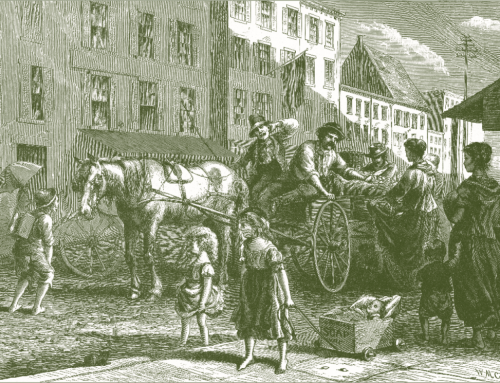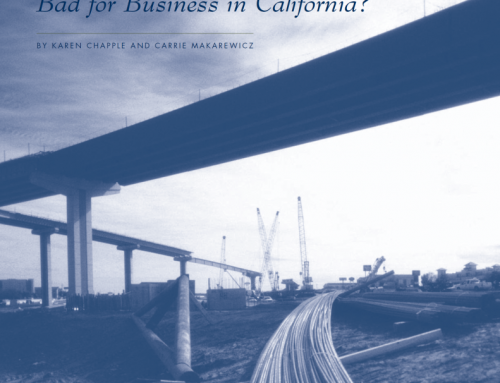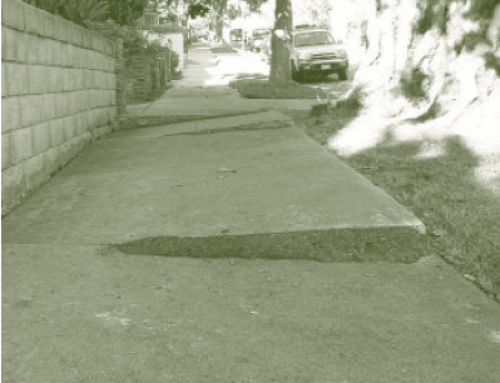Download the PDF.
What are the key policy issues? What are the take-aways from this research? What can we do now and what more do we need to know?
For over 20 years, researchers at the University of California Transportation Center have asked hard questions and used the answers to help guide public policy. From its beginning, UCTC’s core research theme has focused on tying together transportation systems analysis and policy. We do this by funding research, graduate and undergraduate education, and special studies for federal, state and local governments. We also support events that bring together professionals, researchers, and students to confront key issues and identify emerging areas of interest. Our activities are made possible through generous grants from the US Department of Transportation and Caltrans.
UCTC’s core research theme has focused on tying together transportation systems analysis and policy.
One of the most prominent ways UCTC helps bridge research and practice is through its annual conference on transportation, land use and the environment held at UCLA’s Lake Arrowhead center. Now entering its 20th year, this event brings together leading practitioners, researchers, and elected officials to debate current policy issues. Last October’s conference theme was “Economic Crisis as Opportunity for Reform.” The attendees generally agreed that transportation policy needs a major overhaul. The challenge presented by global warming suggests that at every level of government, transportation policy needs to be better coordinated with land use, energy, and public health policy. Change at this scale will require national leadership. Yet the federal legislation that authorizes transportation funding recently expired, and we appear to be in a cycle of continual short-term extensions simply to keep the system on autopilot.
In the years since the first Arrowhead conference, California has introduced two successful congestion pricing programs (on State Route 91 in Orange County and Interstate 15 in San Diego).
There is room for optimism, however. Amid the gloom of the economic crisis, it is easy to forget how much progress we have made. In the years since the first Arrowhead conference, California has introduced two successful congestion pricing programs (on State Route 91 in Orange County and Interstate 15 in San Diego). The state has long been a leader in environmental policy, and today it is at the forefront of reducing the transportation sector’s carbon footprint, having recently passed pioneering climate change legislation (AB 32 and SB 375). California has been, and can continue to be, a beacon of enlightened transportation policy.
One goal of UCTC is to give policymakers the information they need to enact wise and innovative transportation policies. Access magazine is an important way for us to disseminate that information. Several articles in this issue focus on a complex subject that generates many questions—transportation infrastructure and how we use it and pay for it. Lisa Schweitzer and Brian Taylor address one of the toughest questions of all: who pays for transportation infrastructure, and is the payment structure fair? Two other articles focus on sidewalks, an oft-ignored part of transportation infrastructure. Anastasia Loukaitou-Sideris and Renia Ehrenfeucht consider how walking has dwindled, which is ironic given that local regulations have tended to ban many sidewalk uses in the name of making it easier for pedestrians to walk. Donald Shoup suggests a creative way to finance sidewalks in these cash-strapped times.
Andrea Osgood examines another undervalued part of our infrastructure—curb parking spaces owned by cities. She argues that local governments can use this resource to encourage carsharing by reserving some spaces and making them free or discounted for shared cars. Finally, Karen Chapple and Carrie Makarewicz challenge the conventional wisdom that transportation infrastructure needs to be expanded in the name of economic development. California ’s most thriving businesses, they find, are in central cities, where infrastructure already exists.
We hope that this and future issues of Access will help UCTC-funded research inform and inspire policy and practice for years to come.
Robert Cervero
Karen Trapenberg Frick






